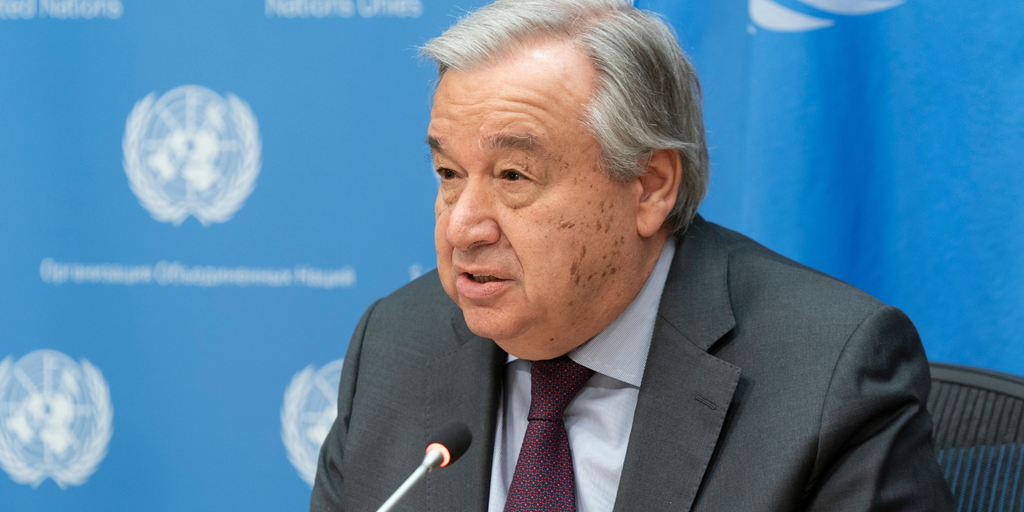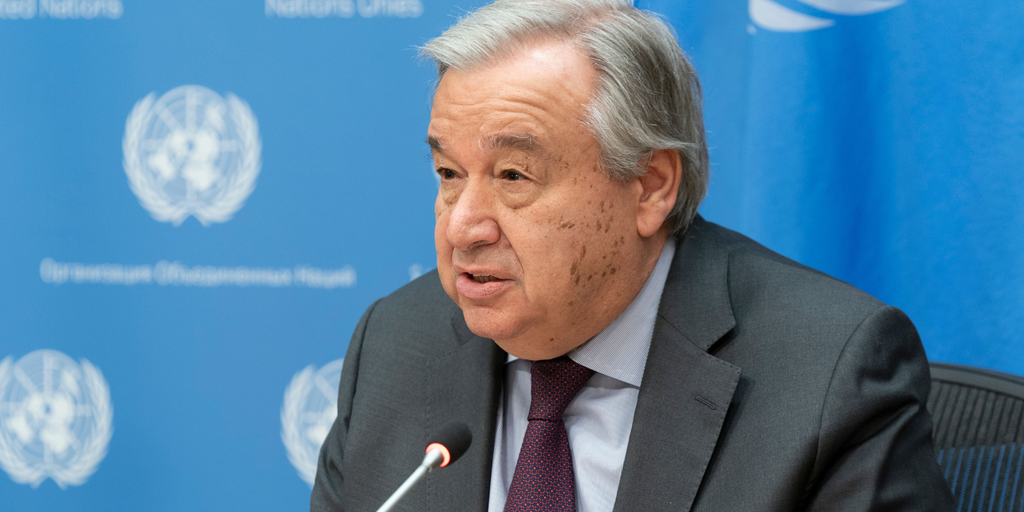[ad_1]

The dangers of generative AI were again the topic of high-level discussions among world leaders as the Secretary-General of the United Nations joined a growing chorus of voices calling for regulating the technology.
“Alarm bells over the latest form of artificial intelligence, generative AI, are deafening, and they are loudest from the developers who designed it,” António Guterres said in a press conference on Monday. “The scientists and experts have called on the world to act, declaring AI an existential threat to humanity on a par with the risk of nuclear war.”
“We must take those warnings seriously,” the UN Secretary-General said.
Guterres’ comments came the same day the UN released a report, “Information Integrity on Digital Platforms,” which underscored the need for responsible AI use and warning of the use of deepfakes in conflict zones.
Also today, the European Parliament passed what it’s describing as “the world’s first-ever AI legislation.”
Making history by shaping our future.
This is what today’s groundbreaking vote on the world’s first ever #AI legislation is all about.
It is about Europe taking the lead in digital innovation. pic.twitter.com/jICNwcX9hy
— Roberta Metsola (@EP_President) June 14, 2023
While artificial intelligence is a critical concern for Guterres, the Secretary-General said the advent of AI should not distract from the damage digital technology is already doing worldwide, given the rise of hate speech and misinformation online.
“The proliferation of hate and lies in the digital space is causing grave global harm now,” he said.“It is fueling conflict, death, and destruction now. It is threatening democracy and human rights now. It is undermining public health and climate action, now.”
Guterres said he would create and appoint members to an AI advisory board to handle AI-related initiatives. The board would include artificial intelligence experts and UN scientists from the International Telecommunication Union (ITU) and the Educational, Scientific and Cultural Organization (UNESCO).
The Secretary-General also said he would be in favor of an artificial intelligence agency inspired by the International Atomic Energy Agency.
Founded in 1957, the International Atomic Energy Agency (IAEA) is a United Nations body tasked with overseeing global nuclear activities.
“The advantage of the IAEA is that it is a very solid knowledge-based institution, and at the same time, even if limited, it has some regulatory functions,” Guterres said. “So I believe this is a model that could be very interesting.”
OpenAI CEO Sam Altman, while testifying before the U.S. Senate Committee on the Judiciary, similarly called for the creation of a government office in charge of setting standards for artificial intelligence development.
“I would form a new agency that licenses any effort above a certain scale of capabilities, and that can take that license away and ensure compliance with safety standards,” Altman said, adding that the would-be agency should require independent audits of any AI technology.
But while the Secretary-General is in favor of a new international agency, he acknowledged a lack of UN investment in public administration, meaning any action would require the initiative of member states and the goodwill of the parties involved.
“Today, we feel how difficult it is for states and for international organizations to compete from the scientific and technical point of view, with the platforms that, in between, have acquired an enormous potential and an enormous knowledge,” Guterres said.
Following the launch of OpenAI’s GPT-4 in March, an online petition by the Future of Life Institute called for a six-month pause on the training of AI systems. Tech industry luminaries, including Tesla CEO Elon Musk and Apple co-founder Steve Wozniak, signed the letter.
Stay on top of crypto news, get daily updates in your inbox.
[ad_2]
Source link

